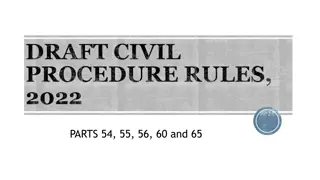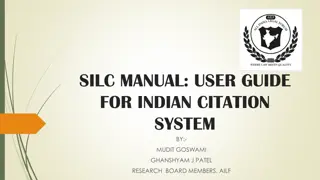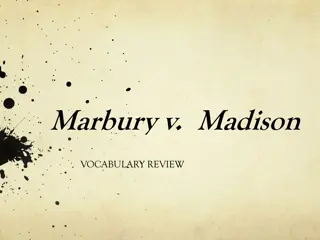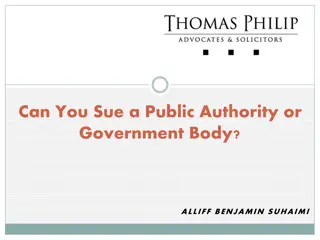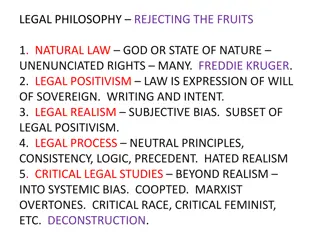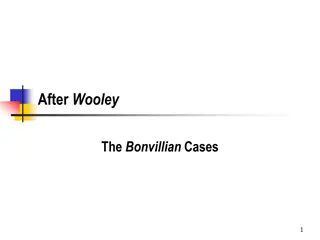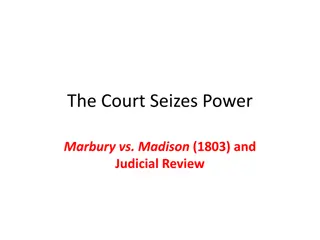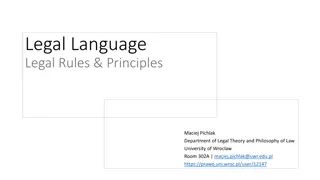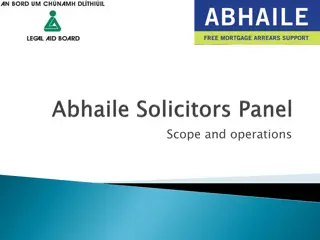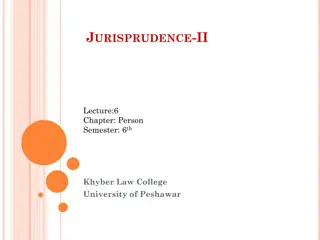Understanding Mandamus: A Legal Overview
Explore the legal concept of mandamus, a writ issued to compel the performance of a duty by an inferior court, discussing its limitations, requirements, and instances where it may be appropriate. Learn about remedies, legal issues pertinent to mandamus, when and how to file a petition, and the necessary components required. Discover how to respond to a mandamus petition within the legal framework.
Download Presentation

Please find below an Image/Link to download the presentation.
The content on the website is provided AS IS for your information and personal use only. It may not be sold, licensed, or shared on other websites without obtaining consent from the author. Download presentation by click this link. If you encounter any issues during the download, it is possible that the publisher has removed the file from their server.
E N D
Presentation Transcript
Mandamus "we command"
ORS 34.110 A writ of mandamus may be issued to any inferior court * * * to compel the performance of an act which the law specially enjoins, as a duty resulting from an office, trust or station; but though the writ may require such court * * * to exercise judgment, or proceed to the discharge of any functions, it shall not control judicial discretion. The writ shall not be issued in any case where there is a plain, speedy and adequate remedy in the ordinary course of the law.
Do I have a plain, speedy, and adequate remedy? An adequate remedy is one that "affords any and all relief to which the relator is entitled." State ex rel. Anderson v. Miller, 320 Or 316 (1994). An appeal usually affords a plain, speedy, and adequate remedy. Suffering the burden of litigation, such as delay and expense, is not sufficient injury to justify mandamus. State ex rel. Automotive Emporium, Inc. v. Murchison, 289 Or 265 (1980).
Legal issues the Court has considered appropriate for mandamus: Venue Personal jurisdiction Double jeopardy Discovery - Disclosure of privileged information, protective orders, allowing or prohibiting depositions of certain persons. Refusal to order witness in criminal case to testify Orders barring press, public or attorneys from attending judicial proceedings
When do I file a petition? Obtain an order first unless it's an emergency. Brewer v. Beers, 280 Or 251 (1977). No rule governs when a petition must be filed. Laches is a bar to mandamus, "must act promptly." Paine v. Wells, 89 Or 695 (1918). Delay, unless "satisfactorily explained," may equate denial, "particularly when the delay has been prejudicial to the rights of the respondent." State ex rel Fidanque v. Paulus, 297 Or 711 (1984). Generally, follow 30-day appeal period. Nelson v. Baker, 112 Or 79, 94-95 (1924); State ex rel Redden v. Van Hoomissen, 281 Or 647, 649 (1978).
What should I include in the petition? Petition for Writ: ORAP 11.05(2); ORAP 5.05(4)(c)- (h); Appendix 11.05; ORS 34.130 Memorandum of Law: ORAP 11.05(3); ORAP 7.10(1)-(2) Excerpt of Record: ORAP 11.05(3); ORAP 5.50(6) Don't forget to seek a stay from the lower court! ORS 34.130(5).
How do I respond to a petition? An adverse party may file a memorandum in opposition within 14 days. ORAP 11.10(1). Form of memorandum must comply with ORAP 7.10(1) and (2). Relator may not file a reply unless the court has requested one.
What does the court do with the petition? The court considers the petition and opposition without oral argument unless otherwise ordered. ORAP 11.10(2). If court accepts jurisdiction, it will issue an order allowing petition. If not, the court denies the petition. Court will also issue with the order an alternative writ of mandamus. Generally, lower court given a time frame in which to comply or show cause for not doing so. ORS 34.150(2). If the inferior court performs the act at issue in the petition, relator must notify the court. ORAP 11.10(5).
What happens if the inferior court does not comply? Relator must file an opening brief within 28 days after issuance of the writ. ORAP 11.15(1)(a). MOETs allowed. Adverse party has 28 days to file an answering brief. ORAP 11.15(2). Reply brief: Must request leave to file within 7 days after the filing of the answering brief. ORAP 11.15(3). Briefs must conform with ORAP 5.35 - 5.50.
What is a peremptory writ of mandamus? The Final Command! If relator entitled to peremptory writ, court administrator issues writ. May be combined with appellate judgment. ORAP 11.17; ORS 34.150(3).



